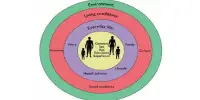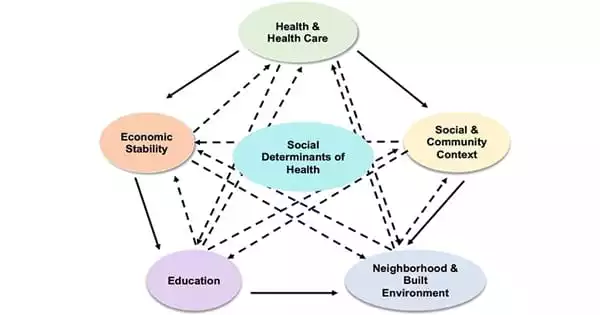There is general agreement that some persons are more likely than others to commit crimes due to societal and financial incentives. Nevertheless, given the same incentives, different persons with different preferences may nevertheless choose in a different way.
This indicates that they evaluate the advantages and disadvantages of committing a crime differently. However, in general, we don’t understand how preferences relate to the likelihood that somebody will conduct a crime.
The resources available to satisfy human needs are finite and serve a variety of purposes. This is the root cause of all economic issues. Human desires are complimentary as well, for instance, the desire for butter and the desire for bread.
Wants are also competitive because they must be prioritized in that order. The most pressing desires must be met first. Wants are changeable and ever-changing. They alter along with changes in status, education, fashion, and other factors.
Therefore, the hypothesis that personality qualities like risk tolerance and impatience are more common among criminals has been examined, according to researchers from the Center for Economic Behavior and Inequality at the University of Copenhagen.
“In addition to looking at the importance of cognitive skills and socio-economic background, we have also examined a number of personal preferences in relation to criminal behavior. And we can clearly see that certain preferences play a key role,” says Professor Claus Thustrup Kreiner.
Our study clearly shows that preferences such as risk tolerance, impatience, and altruism predict the propensity to commit a crime. Other research suggests that it is possible to influence these behavioral parameters in children and young people, which can be very important in relation to the development of criminal behavior.
Claus Thustrup Kreiner
Thieves take chances
The study found that one of the main traits of many offenders is their propensity to take risks.
“The propensity to commit crime is twice as high for the most risk-tolerant individuals compared to the least risk-tolerant,” emphasizes Claus Thustrup Kreiner.
The relevance of a person’s risk-taking propensity in forecasting criminal conduct is equal to half that of their cognitive ability, which are the best predictors of a person’s tendency to commit a crime.
“If we look at different types of crime, willingness to take risks is particularly relevant when it comes to predicting property offenses, such as theft. If we are talking about violent, drug, or sexual offences, problems with self-control are common among the individuals,” explains Claus Thustrup Kreiner.
Focus on the behavior of young men
Data from economic experiments, in which over 7,000 young Danish males were asked to engage via an online platform, are included in the study.
The average payout was about DKK 250 (€ 30), however, it varied depending on the participants’ perseverance during the trial and willingness to take chances with the potential for a significant reward.
The study is consistent with past economic studies that have looked at how preferences affect how different people fare economically. Anonymized data from the tests was linked to administrative data, which not only described the socioeconomic circumstances of the subjects but also contained statistics on criminality.
“We have chosen to focus on crime among young men aged 15-20 because it is a group where a lot of crime is committed compared with other men and women in general,” explains Claus Thustrup Kreiner.
Furthermore, Claus Thustrup Kreiner and the other researchers now have access to a distinctive collection of control variables because to the mix of experimental and administrative data.
“We have gathered information such as school performance, residential area, immigration status, family size, birth order, parental socioeconomic status, criminal activity of parents, and stress factors such as parental divorce or unemployment,” he says.
Punishment or prevention?
The criminal justice system’s primary objective is to prevent criminal activity. According to the findings of the new research, those who commit crimes most frequently are also those who respond least favorably to enhanced enforcement and harsher penalties.
A person who lacks patience and isn’t afraid to take chances is considerably less likely to be prevented by the possibility of future punishments.
“Our study may be able to help explain why there is limited empirical evidence that increasing punishment works to reduce crime,” says Claus Thustrup Kreiner.
The ineffectiveness of punishment emphasizes how crucial effort on crime prevention is. In this case, Claus Thustrup Kreiner agrees that their findings are pertinent. He elaborates:
“Our study clearly shows that preferences such as risk tolerance, impatience, and altruism predict the propensity to commit a crime. Other research suggests that it is possible to influence these behavioral parameters in children and young people, which can be very important in relation to the development of criminal behavior.”
About the study
The research, titled “Preferences predict who commits crime among young men,” was released on February 8, 2022, in the Proceedings of the National Academy of Sciences.
The article is written by Thomas Epper, Ernst Fehr, Kristoffer Balle Hvidberg, Claus Thustrup Kreiner, Søren Leth-Petersen, and Gregers Nytoft Rasmussen, all of which are affiliated with the Center for Economic Behavior and Inequality (CEBI) at the Department of Economics, University of Copenhagen.
















